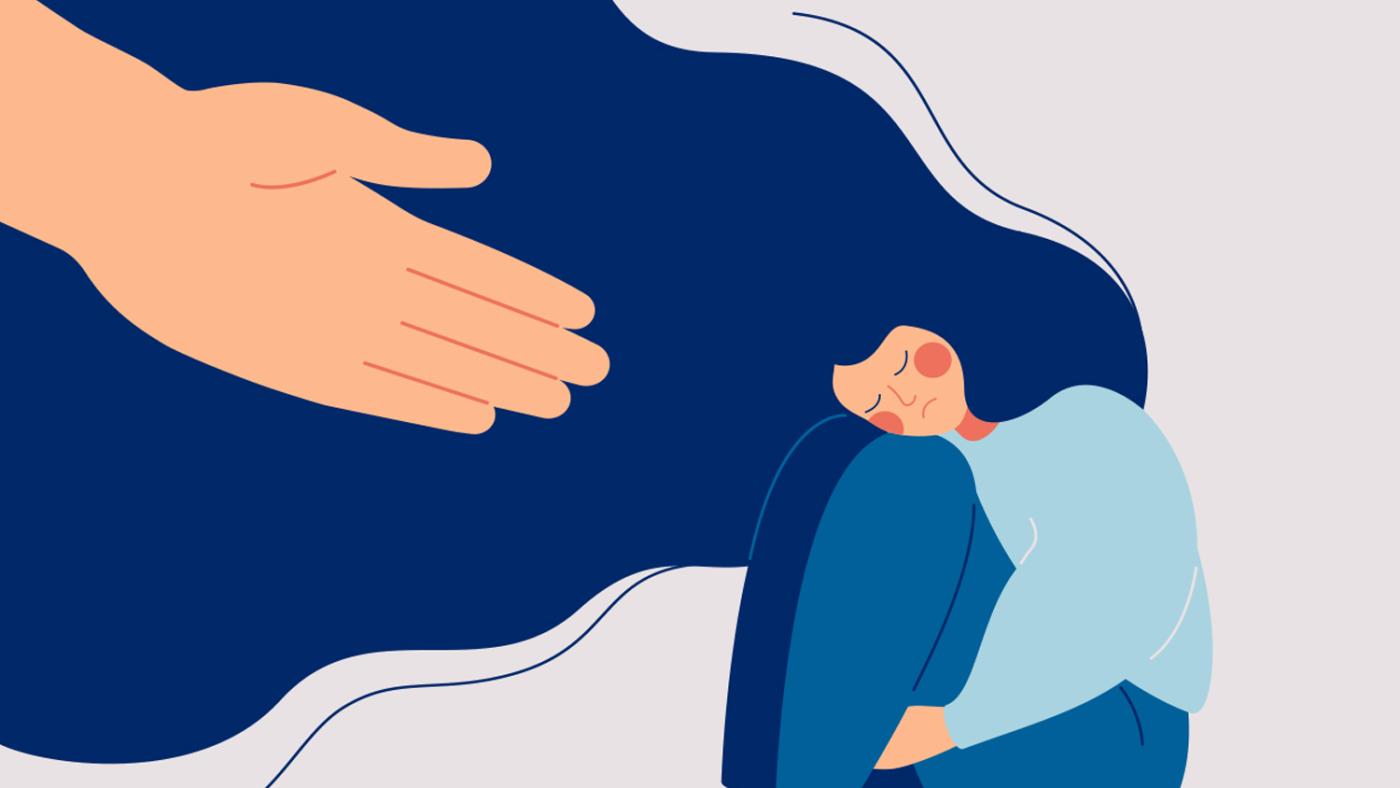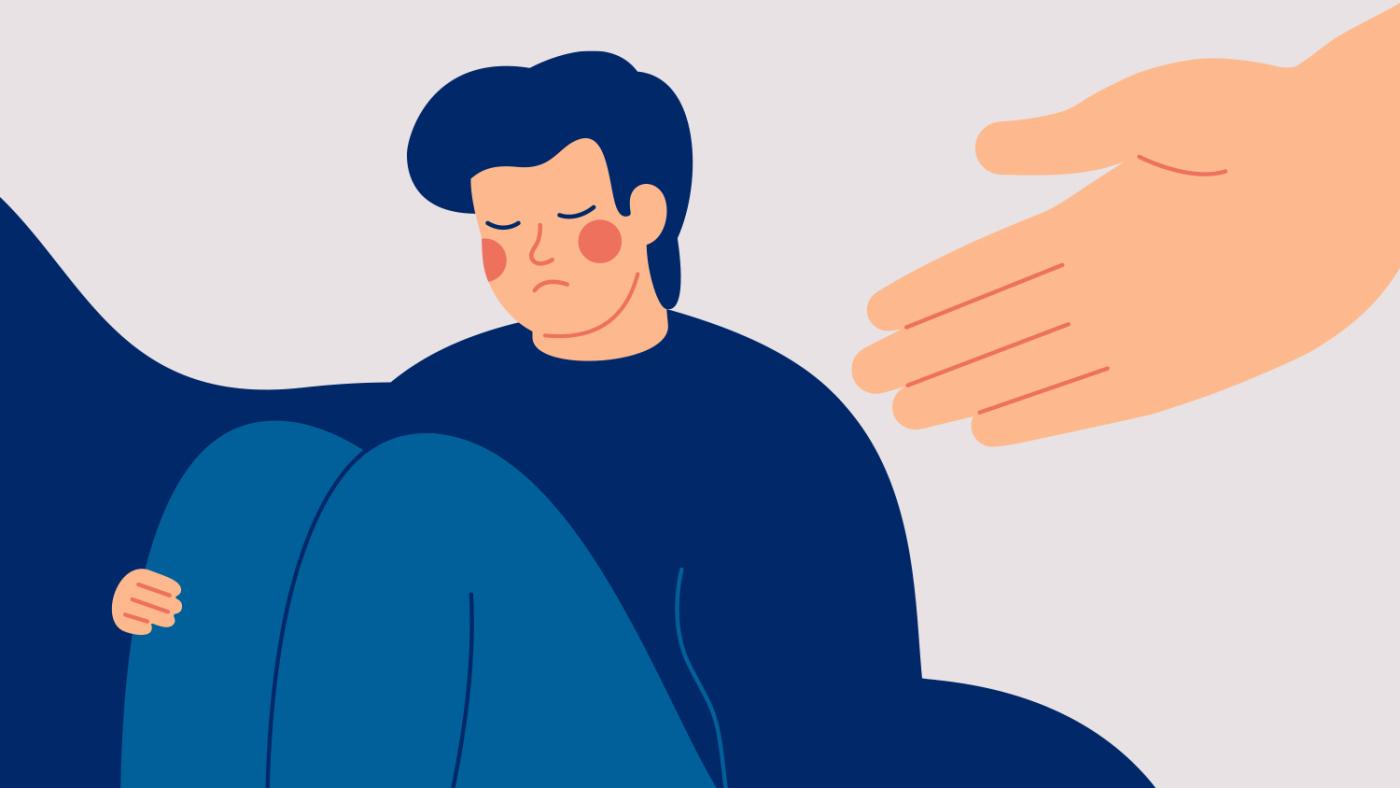Workshop aims to help students with suicidal thoughts
'We should talk to students about suicide'

Students’ mental health has been on the university's agenda for quite some time. Several programmes are available to improve their wellbeing and students can contact study advisors to discuss most of their problems. Thanks to gatekeeper training, advisors are now also made alert to students with suicidal thoughts. Policy officer Simon Bloo, who promotes student welfare at Utrecht University, says: "It's normal for things not to work out sometimes, but it's not normal to think that you can't ask for help."
Recently, a student living in the Cambridge student housing complex took their own life. Unfortunately, this was no exception and suicide appears to have become a sad part of student life. Several cases occurred in recent years in the Utrecht student community alone. Suicide rates among people under thirty have risen by 17 per cent in 10 years, according to recent data by the Dutch Suicide Registry Committee, which is part of the suicide prevention organisation 113. The most common causes are mental health issues, social relationships, and healthcare problems.
Bloo says that student wellbeing is too broad a term. “You can work on student wellbeing in several ways, but, in general, we aim to educate students about mental health. In addition, the university is keen to understand where students' mental issues come from and, more importantly, what can be done about them. The fact is that students struggle with a lot of stress and are more likely to report it."
Openness
Stress can also trigger psychological problems and even lead to serious suicidal thoughts. According to Bloo, student advisors must have sufficient knowledge when a student approaches them and expresses suicidal thoughts. For this reason, UU initiated a gatekeeper training programme for study advisors in 2020. "The programme's goal is to teach student advisors what to do and to whom they can refer students dealing with mental health problems."
Although the course is not compulsory, most study advisors have already taken it or plan to do so. Humanities study advisors Nyncke Kramer and Francisca Duiser attended it in February. Kramer: "The workshop was created by 113 Suicide Prevention Foundation to break the taboo that still surrounds suicide. This makes you a kind of gatekeeper."
During the course, study advisors are asked to role-play. "One person plays the role of a student with suicidal thoughts, while another plays a study advisor. It’s important to practice the conversation like this," explains Duiser. "We also focus on noticing mental health problems in a student. When we pick up certain signals, we can ask further questions," adds Kramer.
She explains that several signs may indicate that someone’s thinking about suicide. “Say, someone comes across as tired, smells of alcohol, avoids eye contact, looks unkempt, cries or, on the contrary, is very cheerful and exuberant. Or someone might say things like ‘What’s the point?' or 'I can't take it anymore.'" However, she stresses that there is no one-size-fits-all formula to predict who will eventually end their life and who will not.
It can be a huge relief for students to make suicidal thoughts known if they haven’t talked about them yet. “And that’s an important part of our role, to provide a safe space to talk openly", Duiser says. Sometimes, when one wonders if a student is walking around with suicidal thoughts, the answer turns out to be a no. "Fortunately, students are not shocked by that question."

Listening
Duiser is currently talking to a student who is contemplating suicide. "That person is now seeing a psychologist too, but I also meet with them once every three weeks. We've agreed I would listen to their story even though I can't offer professional help. They appreciate that a lot."
Students can always turn to study advisors for help. Kramer: "When the topic of suicide comes up, we always listen to them, but it’s important to note that we are not psychologists. What we can do is assist the student in their search for the appropriate person or organisation that will offer them further assistance. At the same time, we can verify what the student needs to be able to study."
Both Duiser and Kramer found the course relevant and practical. “It’s good to focus on this difficult subject. It makes sense for students to share their mental problems, so making it okay to talk about it is essential," says Kramer. "Make sure you don't try to figure everything out alone," adds Duiser.
Online course for students
Another initiative, which focuses on engaging with students who seem tired of life comes from associate professor Jaël van Bentum, who combines teaching with research on suicide and preventive measures. She’s also trying to integrate information and knowledge about suicide into education. "I am currently working with a team to see how we can implement an online course in the Psychology Bachelor's programme, all the way up to the Clinical Psychology programme. In addition, we want to explore whether tutors and student psychologists can also use the e-module."
The project is still in its infancy but will serve to promote suicide prevention education, according to Van Bentum. "Psychology students do not receive structural education about noticing, discussing and treating suicidal thoughts. The online training goes deeper into background information and known theoretical models. This way, a future psychologist is well informed about suicide."
The online module is led by Joanne Mouthaan, a lecturer in Clinical Psychology at Leiden University, in collaboration with the 113 Suicide Prevention Foundation. The ultimate goal is to make the workshop available to all universities in the Netherlands. However, Van Bentum points out that offering it nationally is easier said than done. "It’s an important subject, but also a compelling and sensitive one. You can't just simply add it to a course."
Although her focus currently lies on Psychology students, the workshop may also become available to other courses or even student and study associations in the future. "Anyone is susceptible to dealing with someone close to them struggling with suicidal thoughts. Therefore, it would be beneficial if such training was available in places like student associations so that students too can recognise suicidal thoughts in their friends more quickly and help them. The more people we can reach, the better."
113
Are you having suicidal thoughts? You are not alone. Contact 113 Suicide Prevention Foundation at the website or call 113 (local rate) or 0800-0113 (free of charge). 113's website also offers online training or group training courses in suicide prevention. In addition, you can start talking to someone close to you or a study advisor. You can also contribute ideas on promoting student welfare. For suggestions, please reach out to the contact the Student Wellbeing team at studentwellbeing@uu.nl
Student wellbeing symposium
On April 15, Utrecht University is organising an employee symposium on Student Welfare. It starts at 9:45 am and lasts until 5:00 pm. The symposium will include lectures and a debate, after which workshops will be offered. For more information, see the announcement on the Intranet (accessible only to those with a Solis ID).